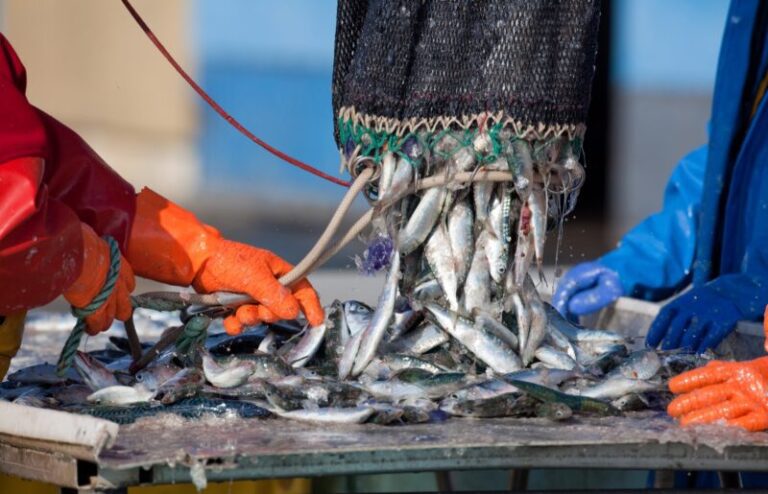The Moroccan Confederation of Industrial Pelagic Fishing Shipowners (COMAIP) and the National Federation of Fishing (FNP) of Mauritania ratified a joint declaration on June 2 and 3 in Dakhla, marking a major advance in fisheries cooperation between the two countries.
This mutual commitment is part of the agreement signed in 2022 between Morocco and Mauritania regarding maritime fishing and aquaculture and follows the letter of intent from Agadir, signed in February 2025 between COMAIP and FNP during the Halieutis Exhibition, according to a statement from COMAIP.
It concretizes a shared vision of sustainable and coordinated management of fishery resources along the Atlantic African coast, particularly small pelagics, in accordance with the principles and objectives set out by the United Nations Convention on the Law of the Sea (UNCLOS) and the FAO Code of Conduct for Responsible Fisheries.
“The joint declaration signed in Agadir embodies a common vision of a shared future. Today, in Dakhla, we are working to bring this vision to life through concrete actions,” emphasized the president of COMAIP, Mohamed Lamine Hormatallah, as cited in the statement.
For his part, the President of the FNP of Mauritania, Mr. Hamadi Baba Hamadi, whose speech was read by the first vice-president, Yahefdhou elbachir, recalled the imperative of collective action, noting that the preservation and rational exploitation of these fisheries require consultation and collaboration to implement exploitation policies that ensure the sustainability of these resources for the benefit of current and future generations.
Indeed, during this bilateral meeting, the two professional organizations shared a common understanding of the critical issues related to the preservation of fishery resources, considered a strategic lever for food security, coastal development, and regional ecological balance.
The meeting was also enriched by the participation of key figures from the sector, whose interventions converged towards a shared call for responsibility.
The economist and international fisheries expert, Mohamadou Moustapha Kébé, reminded, according to the same source, of the urgency of collective governance of fishery resources, warning that “without collective management, shared stocks become a tragedy of the commons.”
In the same spirit, the recognized international consultant, Amadou Tall, emphasized the importance of post-capture issues, quality, traceability, and eco-labeling as pillars for the sustainable valorization of the sector.
Continuing this dynamic, the National Institute of Fisheries Research praised the unprecedented nature of this initiative led by the professionals themselves, which it described as a “strong sign of responsibility and commitment to the sustainability of the resource.”
The two parties thus agreed to establish a joint COMAIP-FNP committee, tasked with facilitating the regular exchange of scientific, technical, and socio-economic information related to shared stocks, and proposing coordinated and harmonized management measures based on independent scientific advice.
The committee will also collaborate with the fisheries research centers of both countries to establish common monitoring and evaluation systems to ensure transparent and responsible management. It will also work to develop joint initiatives for training and raising awareness among sector professionals.
COMAIP and FNP commit to jointly advocate to their respective authorities for the strengthening of bilateral scientific and technical cooperation regarding the assessment of shared stocks, as well as for the adoption of coherent regulatory frameworks aligned with international recommendations.
They also call for the strengthening of control and traceability systems for catches and landings to effectively combat illegal fishing.
Furthermore, Moroccan and Mauritanian fishing professionals emphasize the need to promote an adaptive management approach that responds to changes in stocks and ecosystems, thereby ensuring flexible and sustainable management, and also express their willingness to enhance exchanges between Moroccan and Mauritanian professionals to foster the sharing of experiences and best practices, in compliance with current legislation, concludes the statement.


